The US regime is pro-eugenics. RFKjr furthers the cause.
TheModerateTankie
Even when some place manages to get them crispy they turn out bullshit. It's an amazingly shitty design for a fry. Stubbornly perpetuated by people who invested in crinkle-cut fry cutter machines and don't want to take a loss on investment. One of humanity's greatest food mistakes.
I've never had a good crinkle cut fry.
The problem is that covid can infect places that are hard for our immune systems to clear, like the gut, and there are theories that a lot of long covid cases come from persistent infections, The frequency of reinfections doesn't help, either. China, I believe, has started treated people with drugs used to treat HIV for this reason. In the rules based international community 
 we want to pretends it's over and isn't severe anymore and are leaving people with long covid to fend for themselves.
we want to pretends it's over and isn't severe anymore and are leaving people with long covid to fend for themselves.
A lot of the new variants that show up are believed to derive from long term infections, particularly people with suppressed immune systems, where the virus can spend months mutating.
 bolshevik echo chamber
bolshevik echo chamber 
Yeah, between how infectious covid is, how many new variants have been showing up, and how short immunity lasts (6 months give or take), there is no real seasonality with covid. Generally it drops off in spring because everyone spreads it to everyone else in winter, and then varies wildly the rest of the year.
And it can negatively effect the immune system for a while, so it opens people up to worse infections from other diseases, along with opportunistic bacterial and fungal infections. We just had one of the worse flu seasons in 15 years, and one of the worse whooping cough outbreaks since the 50s. The news has been reporting this stuff, but you have to look for it. I don't think it penetrates most peoples algorithm bubble by default.
I'm not sure how it is for sports people, but for entertainers the insurance they have to cover missed gigs stopped covering covid cancellations, so they never say why certain concerts or whatever have to be cancelled anymore. It's always flu or generic repiratory illness.
Celebrities drop out of the spotlight all the time, and the news doesn't really cover covid infections anymore, but there is a lot of "I'm still recovering from that nasty cold two months ago" news tidbits or social media posts every now and then. For athletes I hear news about how someone is struggling since they got a "not covid" repiratory illness. Since a lot of the news doesn't report any confirmed covid infections anymore it's kind of up to you to infer when they are still having trouble months later, and ultimately it could be something else, there is no way to say definitively.
Before the vaccine the chance of getting long covid was 10-20%, and after vaccines that went down to about 4% per infection so it's less common in recent years. However the risk doesn't seem to be dropping any further but it's very hard to tell. There is some theories and evidence that between the numerous vaccines and infecitons, our bodies are getting better at fighting off the various new strains of it, but I don't think we'll have a clear picture of the new normal for a long time. Specifically because almost no one gives a shit anymore. They don't test, doctors don't care, and if people get long covid, and don't understand what long covid is, they chalk it up to something else like "shit just happens for no reason" or "aging". Meanwhile the disability rate continues to climb. In the last 6 months or so the rate of covid has been relatively low due to lack of new variants popping up, but that just changed and we can expect a new signicant wave for summer.
They're gonna let 'er rip. stock up on well-fitting n95s.
We need to rebrand socialism and communism to turbo-capitalism and ultra-capitalism++


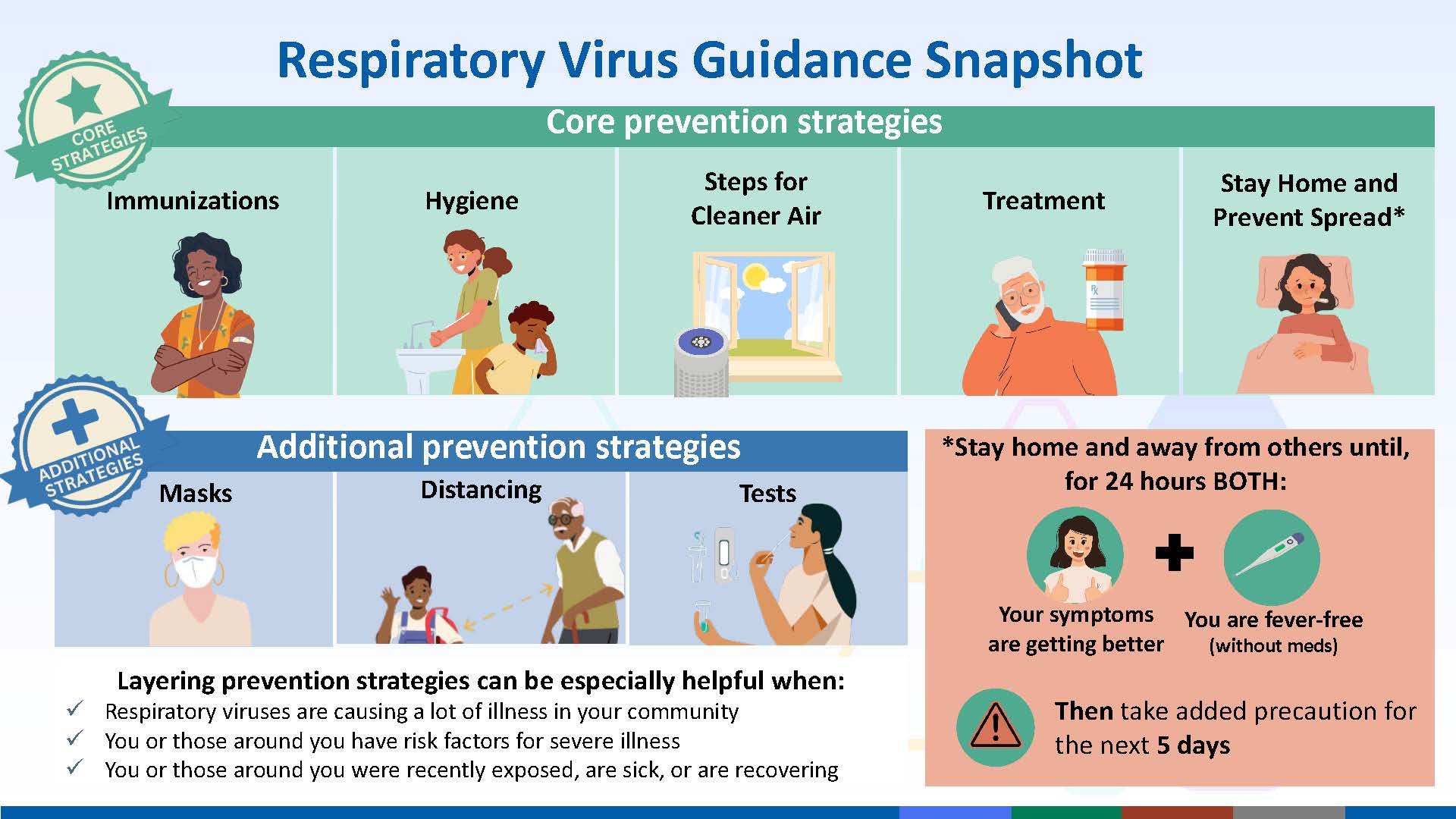
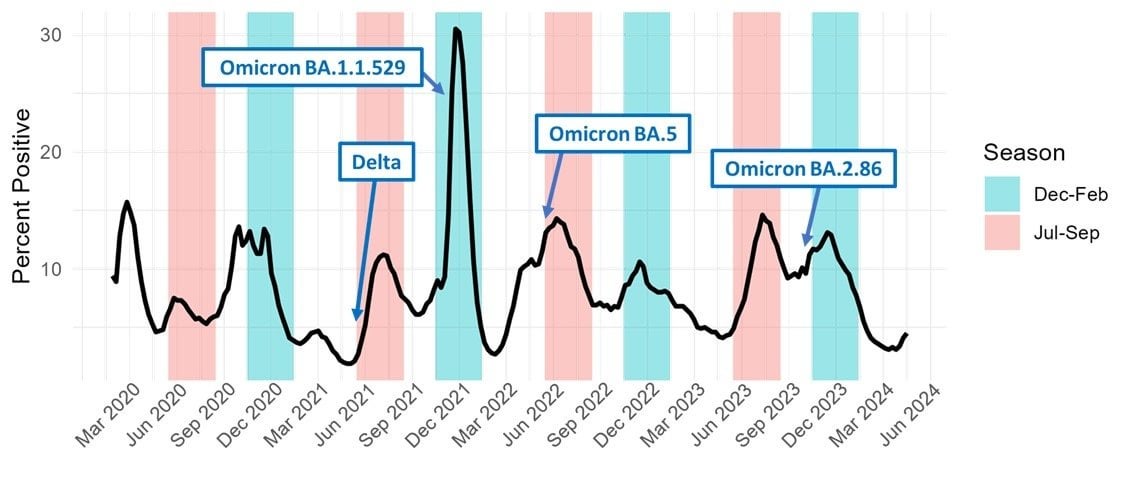



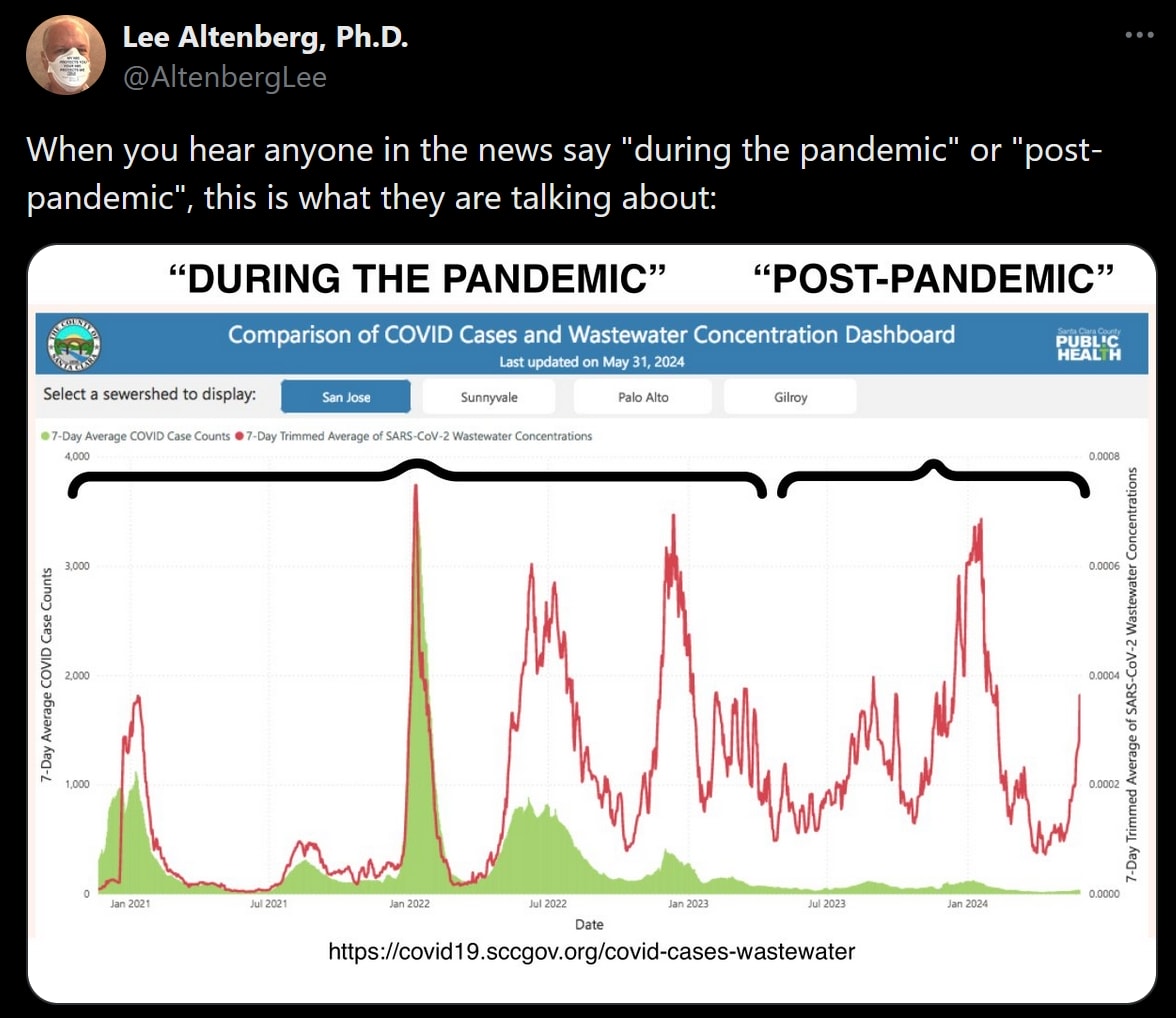




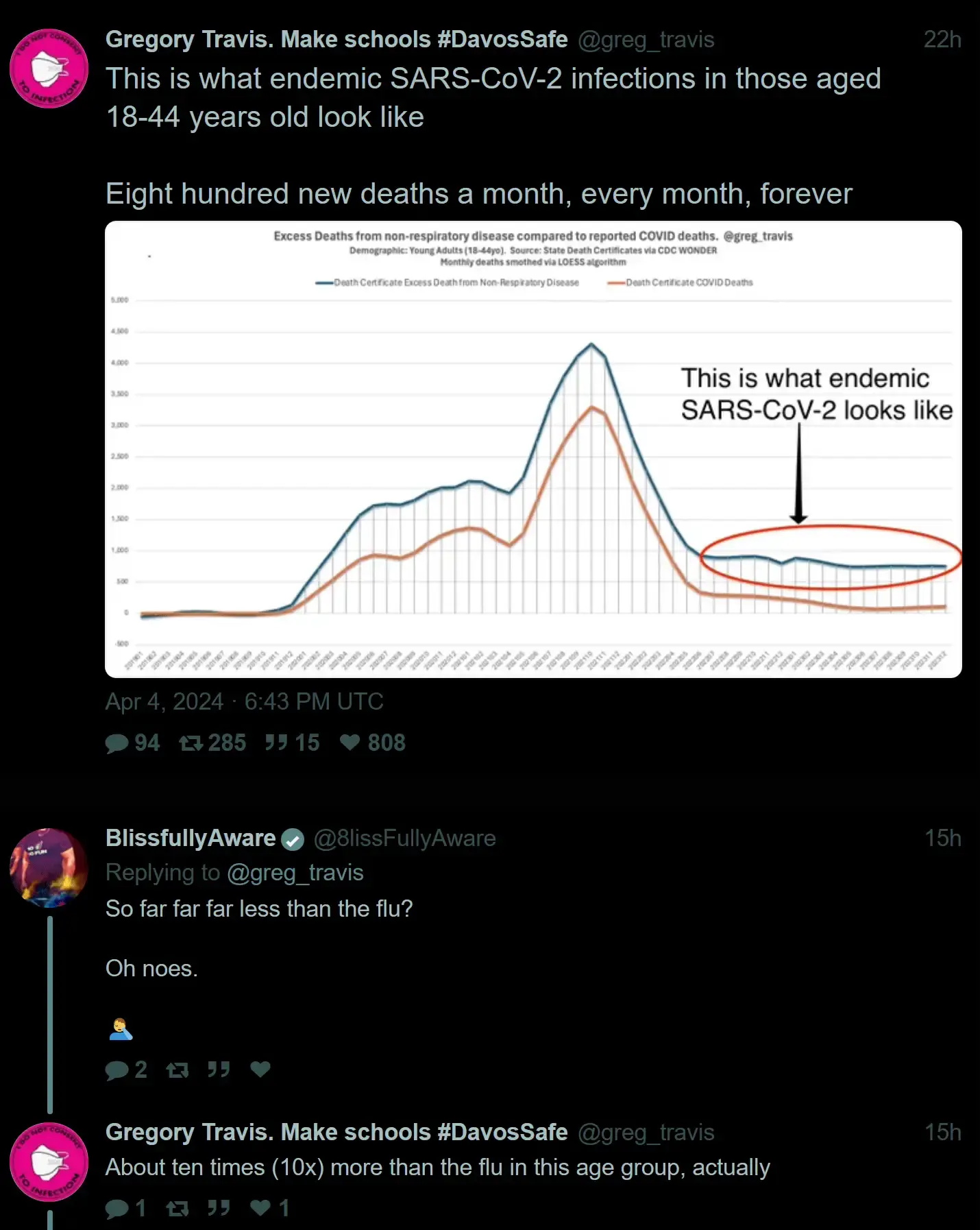
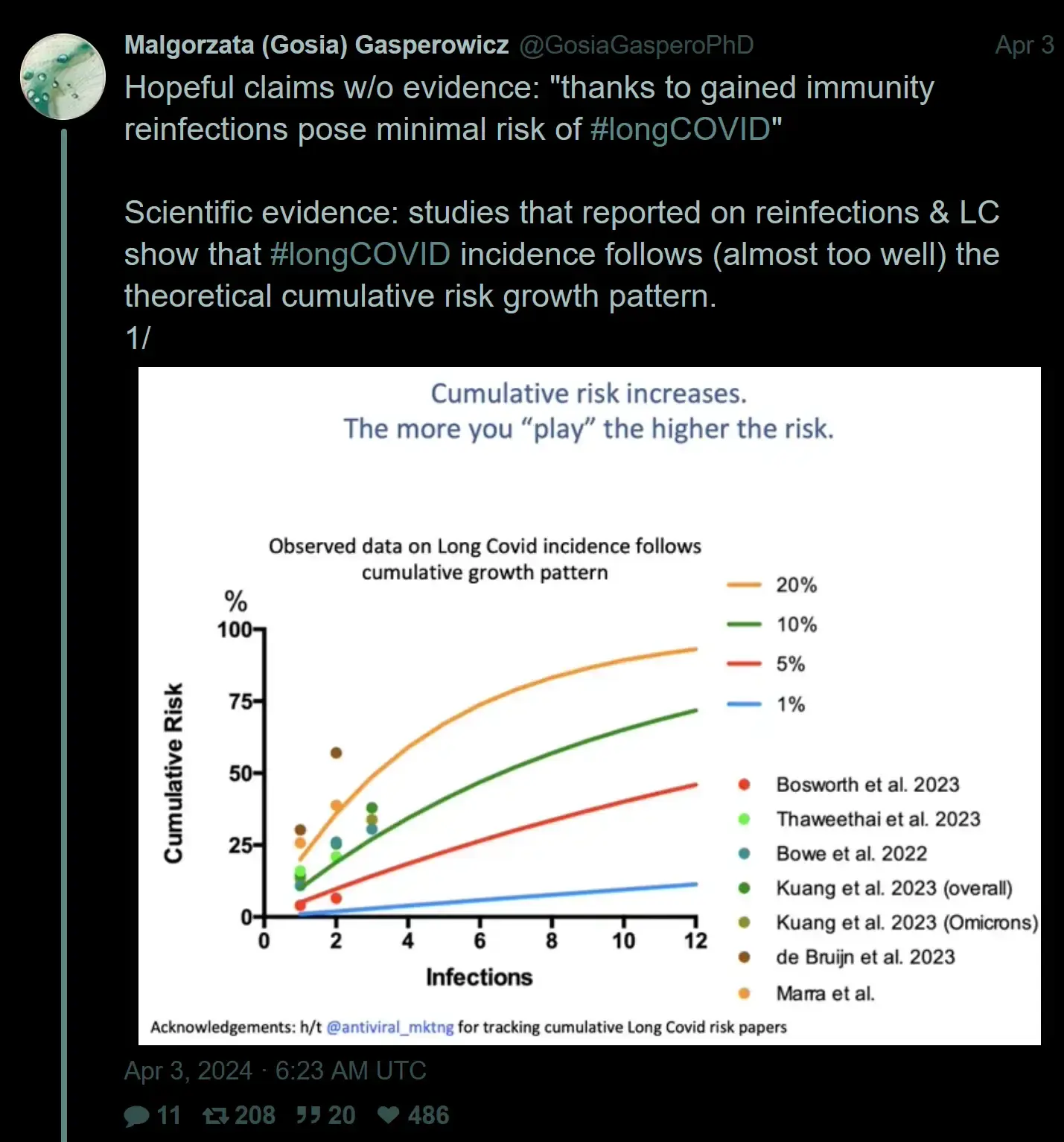
The 2003 war was preceded by about a decade of harsh sanctions and intermittent missle strikes.